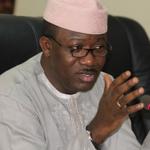Olusola Akanni, a visionary immigration officer with the Nigeria Immigration Service, is blazing a trail as one of the country’s brightest young talents in border governance and human mobility. With a background in geology and a strong postgraduate focus on environmental management, Akanni has emerged as a standout figure combining geospatial science, humanitarian strategy, and national security.
A graduate of Obafemi Awolowo University, Ile-Ife, Akanni earned a Bachelor of Science degree in Geology in 2012 and later completed a Postgraduate Diploma in Environmental Control and Management. His academic foundation set the stage for a career deeply rooted in climate science, disaster response, and the human consequences of environmental change.
In 2016, Akanni joined the Nigeria Immigration Service and quickly distinguished himself during basic training at the Kano Immigration Training School. He graduated with a rare merit award for distinction, placing in the top 3% of a competitive cohort of 211 cadet officers. This early accolade foreshadowed the remarkable path he would chart in the years ahead.
Akanni’s groundbreaking research on flood risk and internal displacement in Ilaje Local Government Area of Ondo State was published in a peer reviewed environmental journal in 2018. This study, which utilized remote sensing and GIS analysis to assess vulnerability zones, became a policy reference point for local and state governments. In 2019, the Ondo State Government formally recognized Akanni’s contribution with the Governor’s Award for Applied Environmental Research and Disaster Risk Reduction, citing his work as instrumental in relocating vulnerable communities and re-siting IDP camps away from floodplains.
His pioneering efforts soon caught international attention. In late 2019, Akanni was nominated for a highly competitive “Train the Trainers” course on Hostmanship and Humanitarian Border Management in the Netherlands, hosted by the Dutch Ministry of Justice. Out of over 500 nominated immigration officers from Nigeria’s 36 states and the Federal Capital Territory, Akanni emerged as one of only 10 selected participants. His selection followed multiple rounds of assessments, presentations, and evictions underscoring the rigorous merit based nature of the program. Since returning from the Netherlands, Akanni has successfully trained over 150 officers across Nigeria, embedding hostmanship principles, border community engagement, and trauma-informed migrant reception practices into frontline immigration operations. His influence helps to reframe border enforcement as a practice grounded in dignity, data, and discipline.
Akanni’s true forte, however, lies in the application of geospatial technologies to human trafficking prevention and the management of migration risks. Through expert command of tools such as ArcGIS (v10.7) and QGIS (v3.10), he has led national mapping initiatives that identify high risk border zones, migration corridors exploited by smugglers, and refugee settlements vulnerable to climate impacts. His data driven insights have shaped early warning systems adopted by zonal command centers and have even informed discussions with international development partners on cross-border migration resilience.
Among his most notable innovations is the integration of remote sensing and community feedback data to develop real time surveillance tools for detecting trafficking patterns and illegal entry points. Akanni is recognized as a national subject matter expert on this topic and has presented technical briefs at inter-agency working groups on migration governance.
“Technology is our greatest ally in the fight against organized crime at the borders,” Akanni explained in an interview. “When we blend human intelligence with machine learning, we begin to see patterns that were previously invisible.” His unique blend of field experience, academic rigor, and technological proficiency is rare in Nigeria’s public service landscape. As colleagues and superiors increasingly rely on his expertise to guide complex operations, Akanni’s name has become synonymous with innovation in immigration enforcement.
Beyond his technical accomplishments, Akanni is also admired for his humility, mentorship, and unwavering dedication to public service. He is often found conducting field visits in remote border communities, listening to residents, and incorporating their lived experiences into national policy recommendations.
In 2020, several senior figures within the Nigeria Immigration Service began informally referring to him as “The Digital Enforcer” a nod to his capacity to merge data science with enforcement strategy. His passion for combating human trafficking and irregular migration stems not only from a professional mandate but from a deep moral commitment to protect the vulnerable and uphold human dignity. Akanni’s story represents the emergence of a new kind of public servant one who is not only prepared to enforce rules but also to redesign the systems behind those rules using cutting-edge tools and deep empathy. As Nigeria navigates increasing migration complexities due to environmental shocks, regional conflicts, and economic disparity, voices like Akanni’s are more crucial than ever. He is not just enforcing immigration laws; he is reimagining what those laws could look like in a data powered, humanitarian future.
For now, Olusola Akanni remains focused on his work at the Nigeria Immigration Service, but his trajectory suggests we may soon see him leading continental strategies on migration governance. One thing is clear: Nigeria, and indeed West Africa, has found a precious asset in him.





